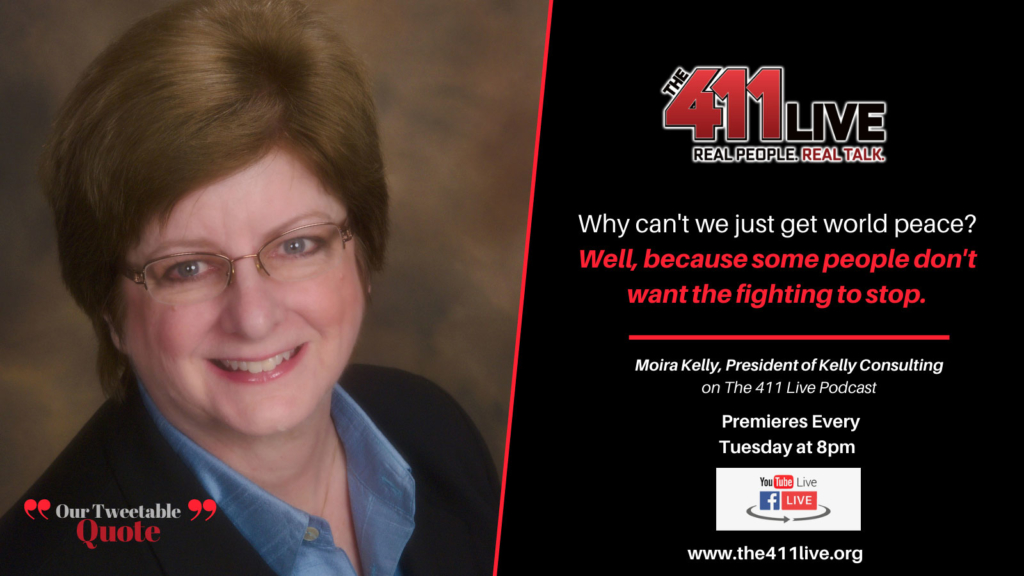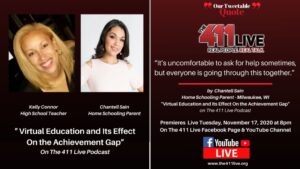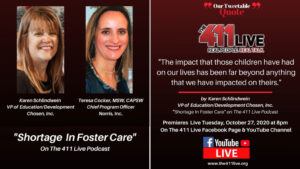In the first episode of their fourth season, Taylor opens the door for discussion on different conflicts to be able to find alternate solutions. In correlation with the conflicts we’re stumbling across here locally, not to mention nationally, Taylor brings Moira Kelly to the floor to touch on some of the different levels of dispute one can find in the conflicts all around them. With her extensive knowledge and experience in this field, Kelly answers the question we’ve been asking for generations. “Why can’t we just get to world peace?”
Kelly tells us she first became exposed to the struggles of labor negotiations as the VP of Human Resources with unionized firms. “I absolutely loved not just the practice of negotiation, but also the theories behind it.” Some of those theories she bestows on the listeners of the 411 Live podcast in examples of conflicts people can easily come across in their lives. One such resolution theory is Reframing. “Reframing is to take a situation and to have the parties be able to look at it in not just one of two ways: mine, yours. But to look at it as something different, something bigger, something more expansive, or sometimes something more narrow.” Kelly goes on to explain the complications of this theory and how difficult of a skill it actually is to master, anybody, can learn how to use it.
On the 411 Live, Beverly Taylor introduces us to Moira Kelly, a graduate from Marquette University with a Bachelor of Arts degree, a Masters in Dispute Resolution, and a Masters of Science in Management from Cardinal Stritch University. This brilliant professional is known as “The Dispute Doctor” not only opened up her own business in New Berlin called Kelly Consulting LLC which mitigates their time to consulting and training on dispute resolutions, labor relations, and organizational effectiveness, but also penned her own thoughts on successful mediation in How To Cost A Labor Contract BNA (2011).
Conflict resolution isn’t the only insight Kelly offered in her interview. She also delves into the reasoning for disputes occurring in the first place. “The vast, vast, vast majority of people really dislike conflict and they don’t want to be involved in it.” Kelly explains that the fear of conflict causes bystanders and forced outcomes that could have otherwise been avoided. She also explains another side of people. “Some people feed on conflict and they view it as a sport. And they like to get in there and poke and prod and rile people up and then sit back and watch the show. They think it’s interesting or fun, especially if they can get other people going at each other, but they get to not be involved.” This is where Kelly turns on the lights for her listeners because it is in the level of conflict where disputes become entertaining or the reward for a conflict won simply cannot be split that Kelly tells us, “Why can’t we just get world peace? Well, because some people don’t want the fighting to stop.”
The best way one can become a mediator in their own lives is through listening. In the second half of Taylor’s interview, Moira Kelly describes her experience with men inside the Green Bay Correctional Institution. She and Taylor had positive experiences with the facility, not only because of the great program that was offered, but also the men’s response to her conversations and discussions on conflicts behind bars. Taylor elaborates, “I was amazed, and they were like sponges. You know, they took in the exercises and they participated, and the discussions were incredible.” It was on this topic that Kelly introduced the different types of listening preferences found among people. “We like to hear things the way we like to hear things. And there are four different ways of preferring how you listen, and these are considered listening styles.” She ties up nicely that these listening styles are a gateway to conflict, but once recognized can be the road to understanding and preserving relationships.
By Emma Bonack






